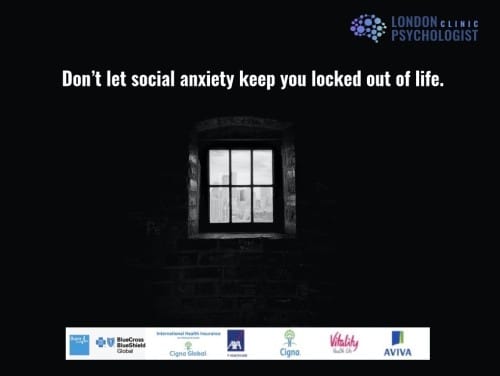Treatment for Social Anxiety

posted 27th April 2023

What is social anxiety and how is it treated?
Social anxiety is typically diagnosed by a mental health professional after a thorough assessment. This assessment usually includes an in-depth discussion of the person’s symptoms, thoughts, and feelings in social situations. A mental health professional may also use questionnaires and scales to assess the severity of the person’s social anxiety. In some cases, a physical exam and lab tests may be performed to rule out other medical conditions that may be causing the symptoms.
Social anxiety can have a significant impact on a person’s life, affecting their relationships, work, school, and overall quality of life. People with social anxiety may experience difficulty making and maintaining friendships, participating in activities they enjoy, or even going to work. They may also feel ashamed or embarrassed about their condition, which can lead to further isolation and depression. In severe cases, social anxiety can lead to substance abuse and suicidal thoughts or behaviours.
The cause of social anxiety can be due to a variety of factors, including genetics, environment, and past experiences. Studies suggest that genetics may play a role in the development of social anxiety, as people with a family history of anxiety disorders are more likely to develop social anxiety themselves. Additionally, environmental factors such as childhood trauma and bullying can lead to social anxiety. Also, people who have had negative experiences in social situations in the past may be more likely to develop social anxiety.
There are a number of treatments available for social anxiety. Cognitive-behavioral therapy (CBT) is one of the most common and effective treatments. CBT helps people with social anxiety recognize and change the negative thoughts and beliefs that are contributing to their anxiety. Other treatments may include medications, exposure therapy, and relaxation techniques.
Evidence suggest that Cognitive-Behavioral Therapy (CBT) is effective in treating social anxiety. A 2018 systematic review and meta-analysis of 39 studies found that CBT was superior to control conditions in reducing social anxiety symptoms. Another study published in 2020 found that CBT was effective in reducing social anxiety symptoms in adolescents.
Cognitive-Behavioral Therapy (CBT) for social anxiety typically includes a number of steps:
1. Psychoeducation: The therapist educates the client about social anxiety, its causes, and the treatment process.
2. Assessment: The therapist assesses the client’s symptoms and levels of functioning in order to create an individualized treatment plan.
3. Cognitive Restructuring: The therapist helps the client identify and challenge negative thoughts and beliefs that are contributing to their social anxiety.
4. Exposure Therapy: The therapist gradually exposes the client to the situations they fear in order to help them confront their anxiety.
5. Relaxation Training: The therapist teaches the client relaxation techniques such as deep breathing and muscle relaxation to help reduce their anxiety.
6. Maintenance and Follow-up: The therapist helps the client develop strategies to maintain their progress and prevent relapse.
The number of sessions needed for CBT for social anxiety varies from person to person. Generally, treatment is short-term and can last anywhere from 6-20 sessions. CBT can also be used in conjunction with medication.
For further information contact us at info@londonpsychologistclinic.co.uk



